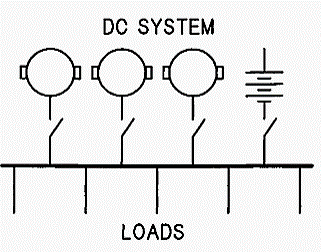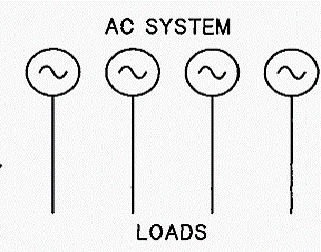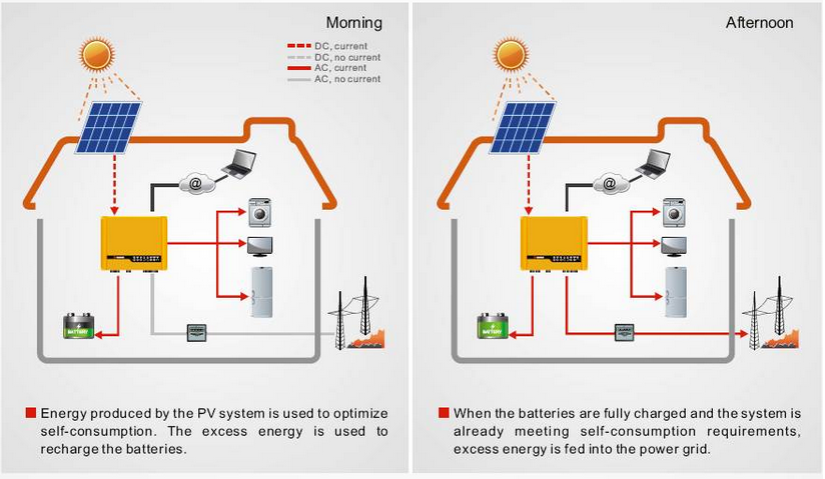Over the past few years, battery technology has witnessed some significant transformations that have benefited humankind in more than many ways. The solar battery system is one such evolution of a charging source that has been welcomed with a blend of appreciation along with some criticism. As most of the renewable energy forms provide a constant energy supply, solar energy emerged as the most effective way to utilize that renewable energy and can be positioned as a sustainable source of energy in a long run.
Solar Battery Systems

Solar energy is an efficient resource of power, has turned out to be an appropriate charging source for industrial, commercial and residential appliances. With the evolution of the solar charging system, there is a palette of options for the ideal battery system that includes DC and AC powered storage. The solar industry has been figuring out ways to combine efficient storage with solar installation as the grid integration has increased with a manual decrease in the manufacturing costs.
Initially, the DC coupled solar storage was used for remote power system only but the inclusion of hybrid inverter technology and its rapid advancement has paved way for the development of new solar storage systems. Let’s delve more into solar evolution and how a different charging architecture has contributed to this transformation.
DC Coupled System

DC coupled systems are being used for decades and are the preferred and most reliable form of solar architecture. The system stores and outputs energy in DC power through a DC connector. This is further connected to an inverter that converts DC power into usable AC. Unlike AC architecture that requires two or more inverters, a DC coupled system only needs a single inverter to control the functions of the battery and other auxiliary equipment.
DC architecture can provide more energy because its energy flow is not controlled by the inverter and this energy directly reaches the battery after the conversion. DC coupled system is also preferred for backup storage as when the inverter is switched to backup mode, DC architecture uses its preserved energy to sustain the energy flow in the battery.
Advantages
- Provides more energy and ensures a flexible energy flow
- Only requires one inverter to convert the DC power into AC
- Considered ideal for backup storage
Disadvantages
- Complex setup minimizes its efficiency to deliver the desired power charge
AC Coupled System

It’s a storage system where DC power is converted into AC through a solar inverter, which is connected to the same electrical network. By using high voltage batteries, AC coupling can offer numerous benefits when it comes to risk, cost, and flexibility when compared to DC architecture. AC architecture relies on a solar inverter connected with a multi-mode inverter to acquire the charge. Although they are easy to set-up and deliver a powerful charge, they are considered less efficient than the DC charging system.
AC coupling is supported in an inverter, which makes it more reliable and sustainable from the DC architecture point of view. That’s a significant reason why the AC coupled system has evolved as the preferred solar storage system. Due to its control on the multi-mode inverter, AC coupled system is preferred for off-grid residential use and they are also suitable for medium to large 3 phase commercial appliances.
Advantages
- Provide higher efficiency when coupled with AC appliances such as an air conditioner.
- Cost effective installation (Less as compared to DC architecture)
- Can use multiple solar inverters at different locations (AC coupled microgrids)
- Solar inputs can be installed in different positions and tilted at angles because of the dual solar inputs (2xMPPT)
- Can be coupled with DC architecture whenever required
Disadvantages
- Lower efficiency during charging a battery system
- More expensive architecture than the common DC coupled system
- Supplies less power in DC load during the day.
Hybrid Solar Inverters

A hybrid inverter is the transformed version of a DC coupled system that includes high voltage MPPT (Maximum Power Point Tracking) solar controller placed inside a plug unit. Lining up all the essential components in one simple plug unit has minimized the risk of diffusions. These advanced solar inverters have an adaptive algorithm that delivers higher efficiency to the MPPT solar charger. The multi-stage charging helps in controlling the temperature settings which maintains the balance in both, the charger and inverter. The inverter can provide DC and AC power depending on the requirement and by setting up the appropriate apparatus.
Advantages
- Up to 99% charging efficiency (using MPPT)
- Low-cost installation for off-grid systems (up to 2-3 kW)
- Considered ideal for a marine system consisting of 1-2 solar panels
- Efficient for DC loads and applications
Disadvantages
- Complex installations for systems above 3kW where multiple parallel cables are required to complete the setup.
- Expensive to set up systems above 5kW because it requires multiple higher voltage solar charge controllers.
- Supplies less power during AC loading especially during daytime.
- Many of the solar controllers are not compatible with the latest Lithium Battery Management System (BMS)
AC vs DC architecture for Off-Grid Systems

One of the most significant reasons that make people prefer AC coupled off-grid systems over DC architecture is that these modern solar grid systems convert the DC power directly into functional AC. In addition to this quality feature of AC coupling, the installation cost of these solar inverters is lower than any other conventional DC set up. The solar panels can be installed in long strings that can provide as much as 300-600 Volts to the system. AC coupled system is considered more efficient during the daytime to satisfy the high power requirement of air conditioning, pool pumps, kitchen appliances, etc. However, DC coupled systems offer cost-effectiveness when used for small to medium-sized systems. The latest DC coupled hybrid inverters are emerging as a competitive range of solar inverters that supply efficient power along with providing ease in installation and cost.
2 thoughts on “The Solar Evolution: AC vs DC Coupling Systems”